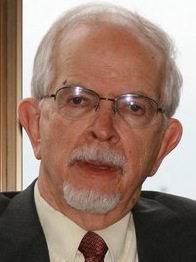Reprinted from Wallwritings
Blessings upon New York Times columnist Nicholas Kristof for pointing out that "fulmination" is the right word to describe opposition to the diplomatic deal President Obama and Secretary of State John Kerry have just reached with Iran and the P5+1 major world powers.
Fulmination is exactly the term to describe the political and pundit "arguments" now being used against the agreement.
That's right, fulmination, as in "to issue a thunderous verbal attack or denunciation."
Or, if your thinking runs more to the ecclesiastical, fulmination is the best way to describe "a sermon that was one long fulmination."
In an internet introduction to his Times column on his support for the deal, Kristof testified with the quiet dignity of a man who comes to the altar after sitting through "one long fulmination" which he finds totally unconvincing.
"I've covered Iran and North Korea for years, and have been to each country a number of times. One of the things I've seen is that American politicians want to practice fulmination rather than diplomacy, but fulmination doesn't block a nuclear program."
In his column, on line and in print, Thursday, July 30, Kristof wrote:
"The U.S. didn't get all it wanted (and neither did Iran) in an imperfect compromise. True, we didn't achieve anywhere, anytime inspections, yet the required inspections program is still among the most intrusive ever.
"Remember too that this deal isn't just about centrifuges but also about the possibility that Iran will come out of the cold and emerge from its failed 36-year experiment with extremism."
The cool, rational language with which Kristof explains "why I think the deal makes us safer," contrasts with the bombastic, irresponsible language employed by politicians and pundits who prefer to fulminate to the voting masses, in language eagerly broadcast by media outlets.
Fulmination is mindless language shouted against the mindful expressions of a thoughtful analyst like Nicholas Kristof.
During the 60-day period Congress has to consider the deal, polls offering to describe public opinion on the deal John Kerry reached with representatives of Iran and the P5+1 major nations should be read with several tons of salt.
The P5+1 offers a strong array of international powers. The term P5+1 refers to the UN Security Council's five permanent members (the P5); namely China, France, Russia, the United Kingdom, and the United States; plus Germany.
One conservative poll operation fed the fulmination fervor with a misleading question that skewed its findings against the deal.
(Note: You can view every article as one long page if you sign up as an Advocate Member, or higher).







